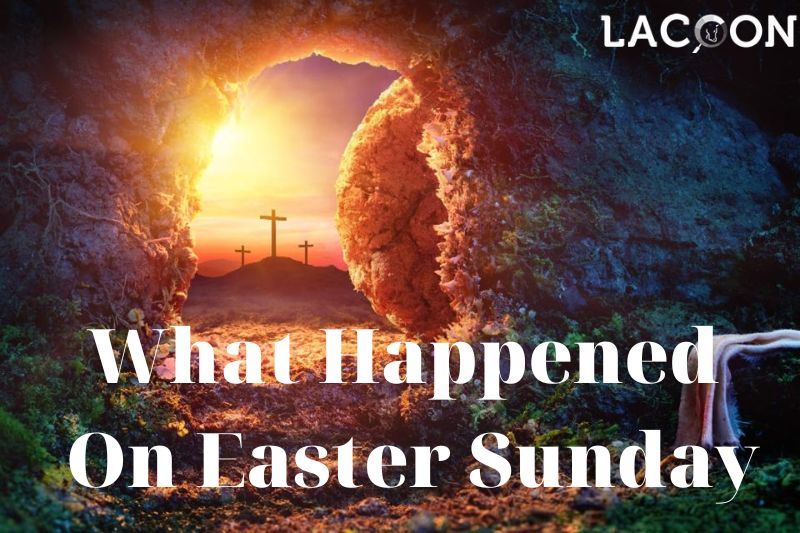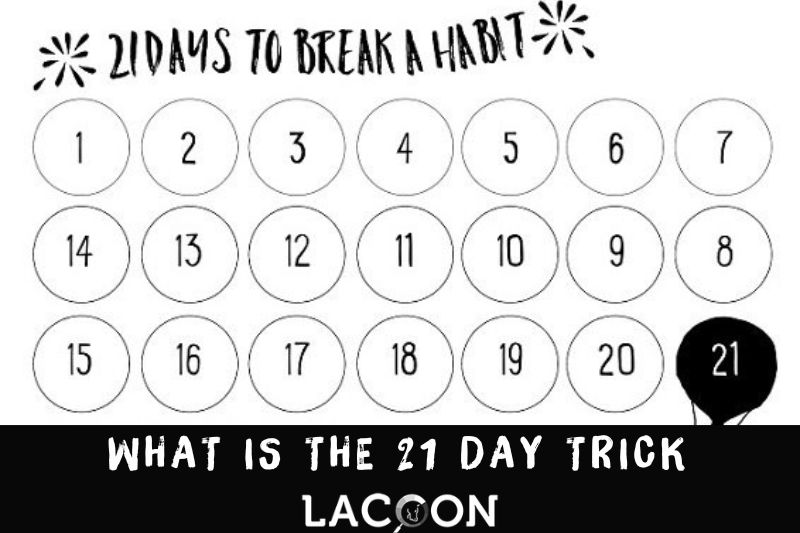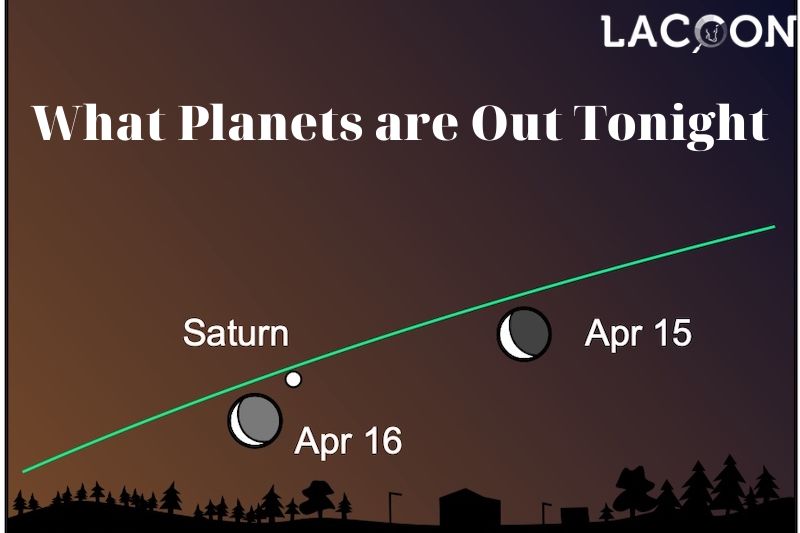Easter Sunday, a significant Christian holiday, celebrates the resurrection of Jesus Christ, which is a pivotal event in Christianity.
The holiday is observed with a variety of customs and traditions, from attending church services to sharing Easter eggs.
In this article, Lacoon will delve into what happened on Easter Sunday and the origins of the Easter egg tradition.
What Is The Meaning Of Easter Sunday?
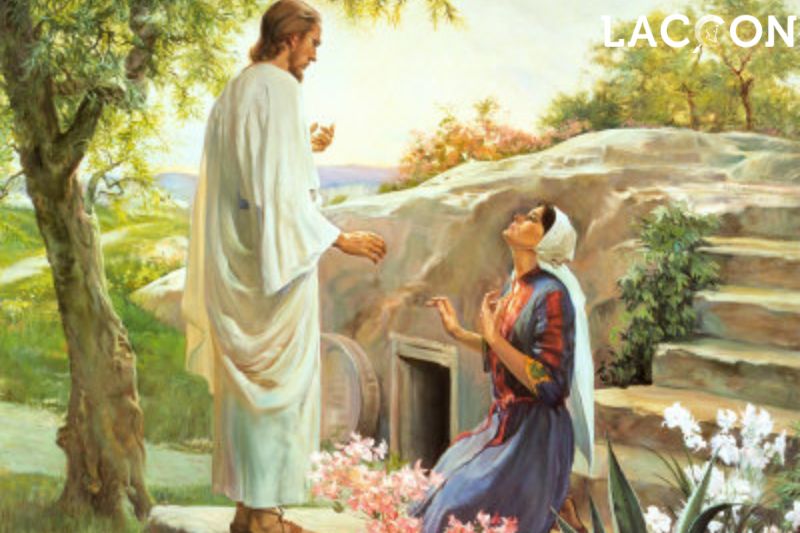
Easter Sunday is a time to remember that Jesus Christ came back to life after being dead. This is the most important part of the Christian faith.
The New Testament says that Jesus was crucified on Good Friday and that three days later, on Easter Sunday, he rose from the dead.
This miracle shows that Jesus won over sin and death, and it gives Christians hope and confidence that they will also rise from the dead and live forever.
The resurrection of Jesus is one of the most important beliefs in Christianity. It proves that Jesus is the Son of God and that God accepted his sacrifice for the sins of all people.
In his First Letter to the Corinthians, Paul said, “If Christ has not been raised, your faith is useless; you are still in your sins” (1 Corinthians 15:17). So, Easter Sunday is not only a time to celebrate Jesus’ win over death but also a time for Christians to reaffirm their faith.
How Is Easter Celebrated?

Easter celebrations range by culture and religion, but they all focus on being happy about the fact that Jesus rose from the dead.
The following are some of the most common Easter traditions:
- Church services: Easter Sunday is an important day for Christians all over the world, so they all go to church. During these services, the Easter story from the Bible is often read, prayers are said, songs are sung, and sermons are given that talk about what Jesus’ resurrection means. Some churches have morning services outside to show that Jesus rose from the dead.
- Easter Vigil: This ancient Christian tradition is held on the evening of Holy Saturday, leading into Easter Sunday. The vigil has several parts, like the Service of Light, where a new fire is lit and the Paschal light is lit to show that Jesus is the Light of the World. Readings from the Old and New Testaments are also part of the vigil, which ends with the announcement that Jesus is alive again.
- Holy Week observances: In the week before Easter, Christians remember a number of things that happened during Jesus’ last days on earth. Some of these are Palm Sunday, which remembers Jesus’ triumphant entry into Jerusalem, and Maundy Thursday, which remembers the Last Supper and how Jesus washed the feet of his followers. And Good Friday, which remembers Jesus’ death on the cross.
- Easter customs and foods:: Many cultures have their own Easter traditions, like the Polish migus-dyngus, where people splash each other with water, or the Greek practice of cracking red-dyed eggs to show that Jesus rose from the dead. Easter foods are also different from one society to the next. Some popular dishes are hot cross buns, Easter bread, and roasted lamb.
Why Do We Celebrate With Easter Eggs?
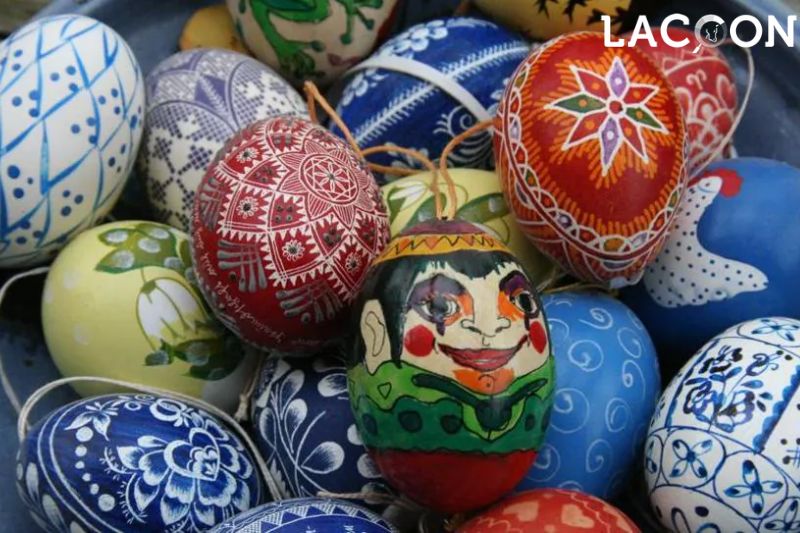
The custom of giving and receiving Easter eggs goes back to ancient times, long before Christianity.
In many countries, eggs have been a sign of new life, fertility, and starting over for a long time.
During the spring equinox, people in ancient Persia gave each other decorated eggs to mark the beginning of a new season. In Europe before Christianity, eggs were often a part of pagan spring celebrations.
As Christianity grew, the egg came to be seen as a sign of Jesus’s resurrection. The hard shell of the egg is like the sealed grave, and the chick that hatches out of it shows that Jesus won over death.
As Christianity mixed with pagan customs, the practice of exchanging eggs during spring festivals turned into the Easter egg tradition we know today.
In the early days of Christianity, red eggs were often used to show that Jesus’ blood on the cross had been shed.
As time went on, people started using more colors and more complicated patterns to decorate eggs.
Some cultures, like the Ukrainians with their detailed pysanky and the Russians with their fancy Fabergé eggs, came up with their own ways to decorate eggs.
Over the centuries, various customs related to Easter eggs have emerged, including:
- Egg hunts: One of the most popular Easter traditions is the egg hunt, where children search for hidden eggs, usually filled with treats or small toys. This activity is believed to have originated in Europe during the 1700s, with the idea that the Easter Bunny, a symbol of fertility and new life, would lay and hide eggs for children to find.
- Egg rolling: In some countries, egg rolling competitions are held on Easter Sunday. The objective is to roll an egg down a hill or across a lawn, with the winner being the person whose egg rolls the furthest without breaking. The tradition is thought to symbolize the rolling away of the stone from Jesus’ tomb.
- Egg tapping: Another popular Easter egg game is egg tapping, also known as egg knocking or egg fighting. In this game, participants tap the pointed ends of their eggs against each other, with the goal of cracking the opponent’s egg while keeping their own intact. This tradition is practiced in many cultures, with some variations in rules and techniques.
Today, Easter eggs are often made from chocolate or other confections and are a favorite treat for children and adults alike.
These modern Easter eggs continue to symbolize the themes of new life and rebirth that are central to the celebration of Easter Sunday.
FAQs
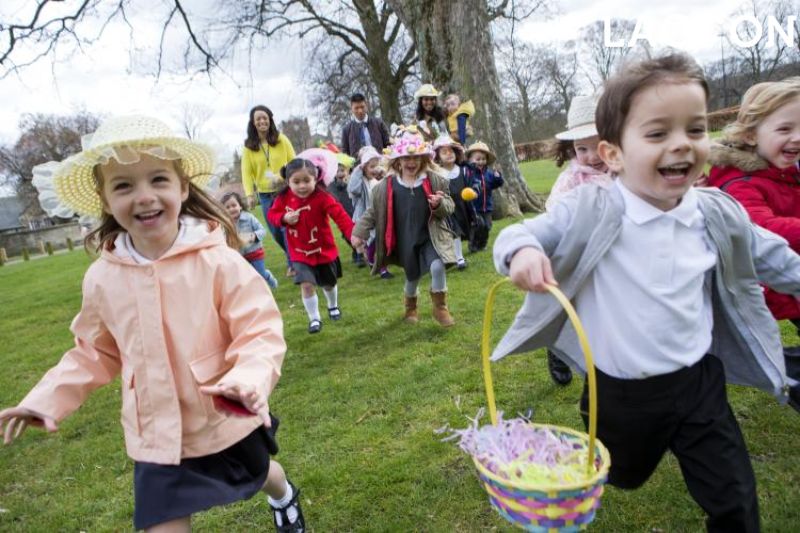
What happened on Easter Sunday?
Easter Sunday commemorates the resurrection of Jesus Christ, who Christians believe died on the cross on Good Friday and rose again on the third day.
Why is Easter Sunday significant?
Easter Sunday is significant because it marks the cornerstone of the Christian faith: the resurrection of Jesus Christ. It symbolizes the victory of life over death, and hope over despair.
Is Easter Sunday a public holiday?
Easter Sunday is a religious holiday and is not considered a public holiday in many countries. However, some countries may observe Easter Monday as a public holiday.
How do other religions observe Easter Sunday?
Easter Sunday is primarily a Christian holiday, but other religions may also have their own observances on this day. For example, in Judaism, the holiday of Passover usually coincides with Easter and celebrates the liberation of the Israelites from slavery in ancient Egypt.
When is Easter Sunday celebrated?
Easter Sunday is celebrated on the first Sunday after the first full moon following the vernal equinox, which falls between March 22 and April 25 each year.
Conclusion
Easter Sunday is a very special day for Christians everywhere. It celebrates when Jesus Christ came back to life, which is the most important part of their faith. People do many things on Easter Sunday, like going to church and sharing Easter eggs. These traditions remind them about hope, starting over, and being saved, which are really important parts of this holiday.
Related Articles:

